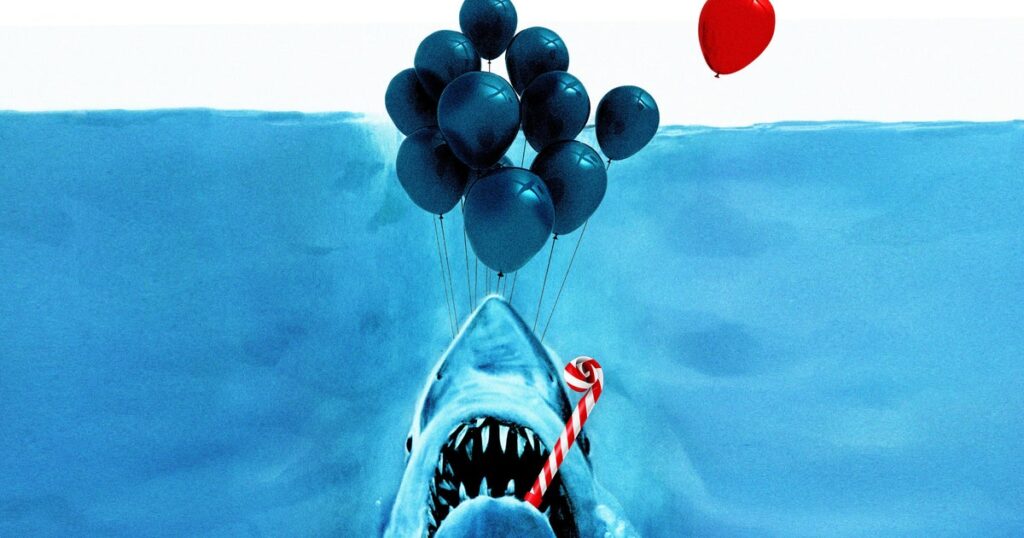
Last summer, a great white shark washed ashore on Nantucket, Massachusetts, sparking an unexpected act of heroism. A family on vacation, encountering the stranded giant, chose to push it back into the ocean, capturing the moment on video. The footage quickly went viral, a heartwarming story tinged with the thrill of danger.
However, had this occurred 50 years ago, during the summer of 1975 when “Jaws” first terrorized audiences, the outcome might have been starkly different. On June 20, 1975, Steven Spielberg’s “Jaws” hit theaters, marking the dawn of the modern blockbuster era and igniting a worldwide fascination with sharks. It was the first film to exceed $100 million at the U.S. box office, according to the American Film Institute. Based on Peter Benchley’s best-selling novel, the movie not only sparked interest in shark research but also fueled an obsession with shark hunting.
The Impact of ‘Jaws’
Wendy Benchley, an ocean conservationist and wife of “Jaws” author Peter Benchley, recalls the immediate aftermath of the film’s release. “When ‘Jaws’ came out, there was an uptick in shark tournaments,” she noted. “This fictional book and movie somehow gave people the license to kill sharks.” Her comments are featured in the upcoming National Geographic documentary “Jaws @ 50.”
In the years since, our understanding of great white sharks has grown significantly, yet much remains unknown about these ocean rulers. Meanwhile, global shark populations have plummeted due to overfishing, even as sightings and attacks have risen along the U.S. East Coast for reasons that remain partially unexplained by scientists.
“I truly and to this day regret the decimation of the shark population because of the [‘Jaws’] book and the film. I really, truly regret that.” – Steven Spielberg
Spielberg himself has expressed regret over the unintended consequences of his film. On BBC Radio 4’s “Desert Island Discs” in 2022, he shared his fears that sharks might hold a grudge against him for the surge in shark hunting post-1975.
Shark Populations: A Decline
The global shark population has seen a dramatic decline since “Jaws” premiered. A 2021 report in the journal Nature highlighted a 71% drop in shark and ray numbers since 1970, largely due to an 18-fold increase in fishing. Wendy Benchley paints an even grimmer picture, stating, “We only have 10% of the sharks left that we had in the ocean 40 years ago.”
Overfishing, driven by massive trawlers that indiscriminately harvest marine life, and the demand for shark fin soup in Asia are primary culprits. Yet, efforts by organizations like WildAid, which has reduced the demand for shark fin soup by 85% through campaigns with celebrities like Yao Ming and Jackie Chan, offer a glimmer of hope.
“You’ve got to have apex predators in the ocean to keep the ecosystem in balance.” – Wendy Benchley
Are Shark Attacks Increasing?
Globally, the number of unprovoked shark bites has decreased, with 47 recorded in 2024, down from the recent annual average of 64, according to the International Shark Attack File. However, the East Coast of the United States tells a different story, with both sightings and bites on the rise.
Florida remains the most likely place for shark encounters, with 14 bites in 2024. Meanwhile, a 2023 attack on Rockaway Beach in Queens marked New York’s first such incident since the 1950s. Cape Cod has also become a hotspot for great whites, challenging both tourists and locals.
This resurgence is attributed to the return of seals, a natural prey for sharks, thanks to successful conservation efforts. Benchley sees this as an environmental success, though she understands swimmers’ concerns. She advises staying in shallow waters, avoiding swimming at dawn or dusk, and steering clear of seals.
“Sharks do not like humans. We don’t have enough fat on us. They’d much rather have a seal.” – Wendy Benchley
The Legacy of ‘Jaws’
“Jaws” leaves a complex legacy in its wake. While it inspired a wave of shark hunting, it also motivated a new generation of marine scientists. The film’s influence led to a 30% increase in enrollment at the Rosenstiel School of Marine Science at the University of Miami, inspired by the character Matt Hooper, played by Richard Dreyfuss.
Ultimately, the story of the Nantucket family who chose to save a stranded shark rather than fear it reflects a significant shift in public perception. For Wendy Benchley, whose husband instilled fear of the ocean only to dedicate his life to its preservation, this change represents a victory.
“Thank heavens. People finally understand how vital sharks are.” – Wendy Benchley





